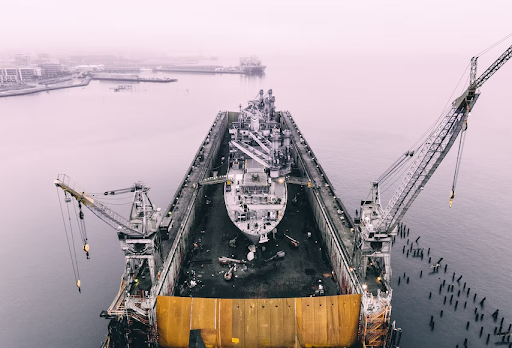The World Ocean covers 71% of the global surface. It happens to be the life support system for the whole planet. For centuries, we thought that we could use its resources forever. Unfortunately, we were all wrong. Our activities have negatively affected the World Ocean by making it weaker and weaker each year.
Now that the time to take action has come we should know what threats we have to deal with. In this article, we have taken a quick look at the threats the ocean is facing today.
Ocean Acidification
The constantly growing levels of carbon dioxide in the atmosphere have a negative impact on the water’s pH. The latter keeps decreasing as the ocean receives higher levels of CO2. As a result, lower pH levels affect the life of marine species. Some of them have already become extinct.
Sea Water Levels Rising
Rising temperatures cause problems to marine biodiversity. For example, coral reefs are incredibly sensitive to high temperatures. Hot waters make them bleach and die.
The so-called thermal expansion makes water molecules more distant from each other due to the growing temperature. In fact, this turns out to be a threat to the whole ecosystem, leading to wetland flooding, destructive erosion, and agricultural land contamination.
Plastics and Ocean Debris
An incredible 8 million tons of plastic end up in the World Ocean each year. Most plastic debris comes from littering – plastic bags, cans, bottles, etc. It first stays in coastal waters, but it is soon taken all around the world by forming garbage patches. The Great Pacific garbage patch between Hawaii and California is the biggest one so far. Just imagine how much harm it causes to animals – suffocation, entanglement, infections, internal injuries, and many more.
Other Types of Pollution
Plastic is not the only problem caused by human activities. Some more pollutants “deserve” our attention.
· Land runoff
· Oil and chemical spills
· Ocean dumping
All of them are affected by a direct discharge of pollutants into the ocean. The latter ones mainly come from different industrial sectors. This can be waste from industrial plants, effluent from sewage directed to the ocean, and/or deliberate discharges from oil tankers.
Extensive Fishing
A favorite hobby of many people may be destructive to the World Ocean. Overfishing puts food security at risk. Some species, that used to be common, can’t be found in the waters anymore. Bluefin tuna is one of many to be named.
Overfishing is mainly caused by illegal and unregulated fishing activities that cost the global economy more than $20 billion every year.
Fishing gear and commercial whaling end up with a great amount of harmful debris, as well as the problem of extinction. Both issues are two absolute evils.
Shipping and Transport
Maritime transport has become a series part of the world economy. In fact, 90% of global trade uses sea routes. It’s not hard to guess that shipping can be harmful to the ocean. Dredging, production of NOx and SOx, and ocean noise are some of the most common issues caused by ships. Marine life is extremely sensitive to all those negative factors.
Offshore Drilling
High gasoline costs lead to a renewed interest in offshore drilling, whether it comes to pipelines or refineries. The expansion of offshore drilling has negative effects on the ocean as well as coastlines. Eventually, more oil spills create even more drastic risks.

Deep-sea Mining
The deepest levels of the sea remain 100% unexplored. However, deep-sea mining gives way to the exploitation of the ocean’s biodiversity and ecosystem.
Scraping the ocean floor for valuable minerals, such as gold, silver, copper, and zinc, can change deep-sea habitats. The negative impact leads to the loss of species that have not been even discovered.
What are the solutions?
Even though the situation seems to be hopeless, it’s not really the case. We still have time to change things for the better. We can do little things for the bigger good. Thus, we can travel at slower speeds to decrease underwater noise, give up on plastic to stop polluting the waters, impose absolute control over whale hunting, and so on.
The world governments have enough resources to apply different solutions for the sake of a clean ocean and healthy marine animals. Protection measures should be embraced on different levels. The business sector with private companies should respect the World Ocean by feeling great pressure on their shoulders. Hopefully, we will be able to change the situation before it gets too late.